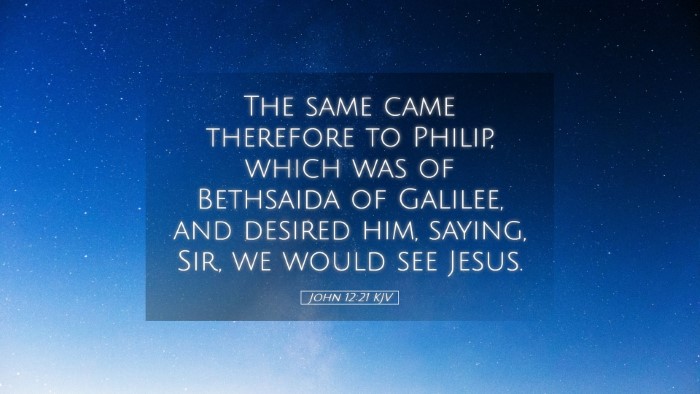Old Testament
Genesis Exodus Leviticus Numbers Deuteronomy Joshua Judges Ruth 1 Samuel 2 Samuel 1 Kings 2 Kings 1 Chronicles 2 Chronicles Ezra Nehemiah Esther Job Psalms Proverbs Ecclesiastes Song of Solomon Isaiah Jeremiah Lamentations Ezekiel Daniel Hosea Joel Amos Obadiah Jonah Micah Nahum Habakkuk Zephaniah Haggai Zechariah MalachiVerse
John 12:1 John 12:2 John 12:3 John 12:4 John 12:5 John 12:6 John 12:7 John 12:8 John 12:9 John 12:10 John 12:11 John 12:12 John 12:13 John 12:14 John 12:15 John 12:16 John 12:17 John 12:18 John 12:19 John 12:20 John 12:21 John 12:22 John 12:23 John 12:24 John 12:25 John 12:26 John 12:27 John 12:28 John 12:29 John 12:30 John 12:31 John 12:32 John 12:33 John 12:34 John 12:35 John 12:36 John 12:37 John 12:38 John 12:39 John 12:40 John 12:41 John 12:42 John 12:43 John 12:44 John 12:45 John 12:46 John 12:47 John 12:48 John 12:49 John 12:50

